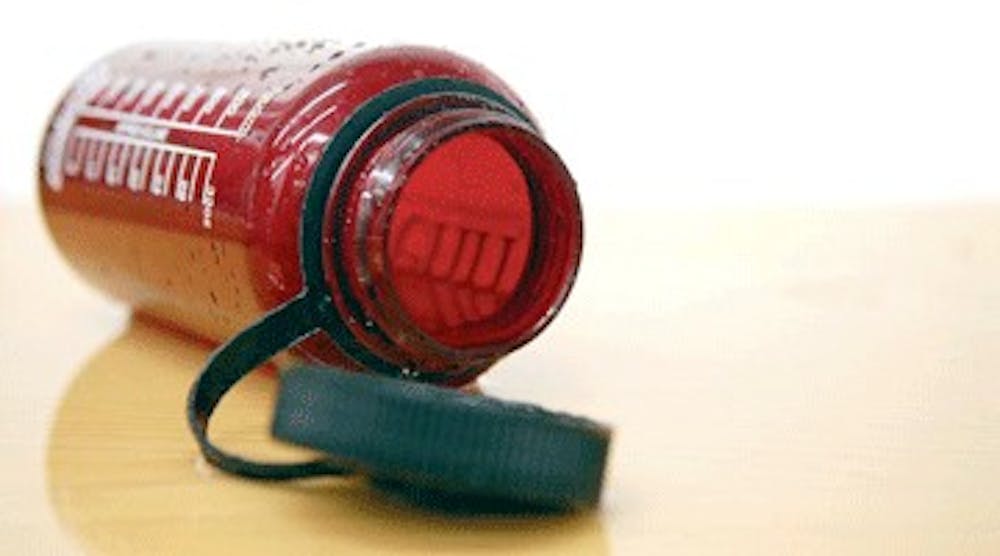Concerns over bisphenol-A - the chemical found in Nalgene bottles and other plastic goods - has sparked nationwide-debate over its safety for consumer use.
Since concerns over the chemical surfaced this spring, universities have been paying attention to any possible risks. In some cases, that has meant changing product lines or eliminating bottled water altogether.
New concerns surfaced this month when a study at the Yale School of Medicine showed that BPA can be detrimental to brain function in primates, extending the results of previous studies on rodents which prompted original concerns in the spring.
The Food and Drug Administration maintains that the chemical does not pose a safety risk "under the intended conditions of use."
As of this spring, the Penn Bookstore has switched from selling Penn insignia water bottles that contain the compound to bottles that are BPA-free.
"[We] pay attention to controversy and try to offer products" that meet consumer interests, Business Services spokeswoman Barbara Lea-Kruger said.
Because the Bookstore's shipment of the new water bottles is due at the end of the month, it's unclear whether this change will motivate more demand or if "BPA-free" will become a selling point to students.
In the dining halls, BPA has never been in the glasses and containers that students drink from, Lea-Kruger said.
Penn Student Agencies, which did not sell bottles last year, now stocks BPA-free Penn water bottles, anticipating student preference and safety.
Other University projects that deal with sustainability have been trying to eliminate plastic bottles altogether.
By using coolers for administration staff in the Franklin Building and certain other offices on campus, bottled water has been completely replaced.
"Sustainability is by definition providing for future generations," said environmental sustainability coordinator Daniel Garofalo. "This includes all public health aspects."
Sarah Abroms, assistant environmental sustainability officer, said the switch to coolers wasn't motivated by BPA concerns, but it addresses that issue as well.



